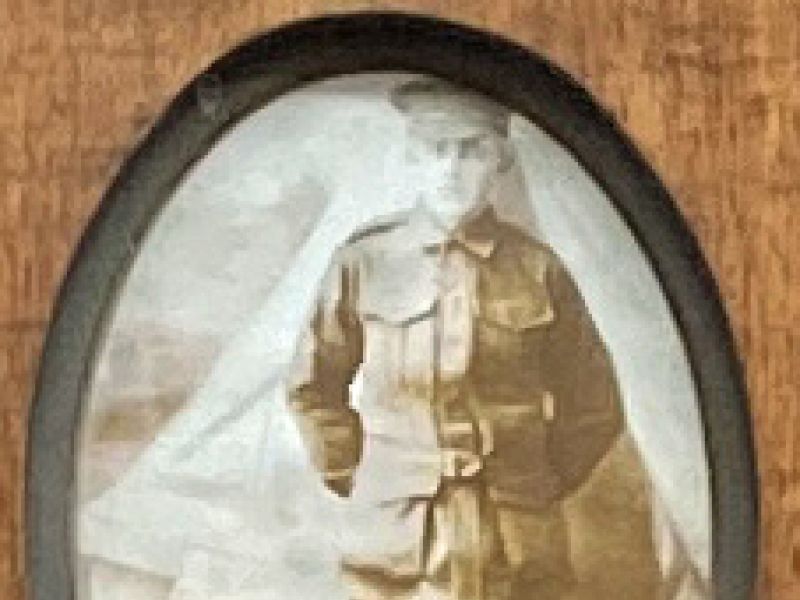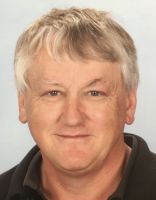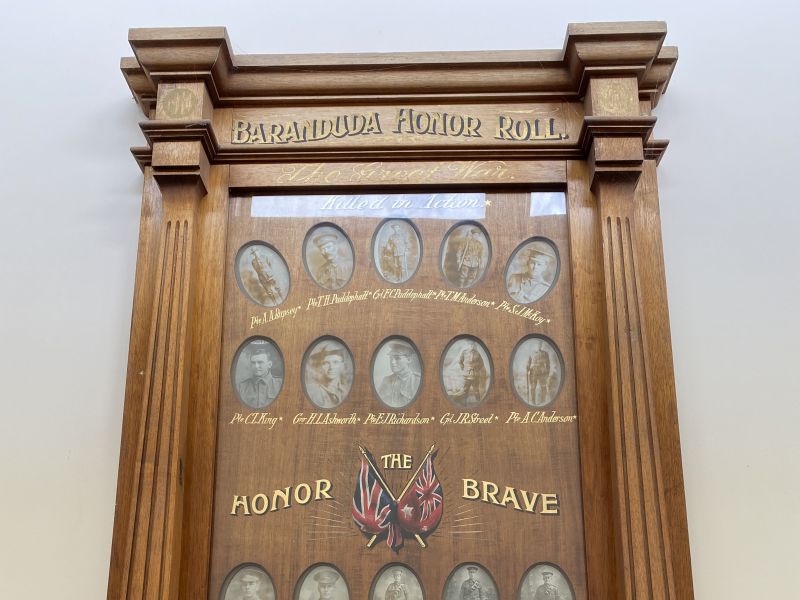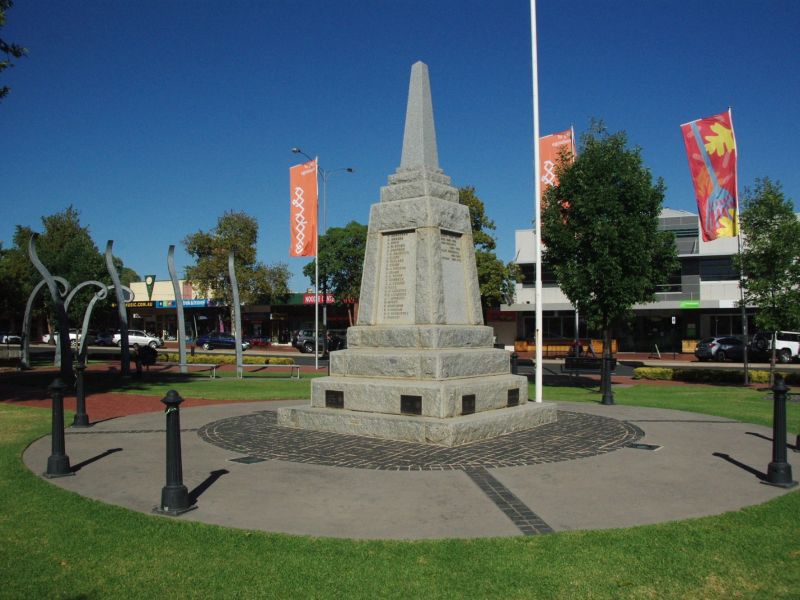James Reginald Street
James was born on the 17th of March, 1887, at Wodonga, Victoria. He was the second of six children of George and Theresa Emily (née Davis). George was one of the pioneering pastrolists in the Wodonga District, and the family property was Baranduda Station. James attended Baranduda State School No. 2222 then went on to complete hhis higher education at Albury Grammar School. After leaving Albury he entered Dookie Agricultural College. The practical skills and theoretical knowledge on farming that he gained from here were put into practice on Bandiana Park.
James received his early education at Baranaduda State School. He followed on with higher education at Albury Grammar and then moved on to further studies at Dookie Agricultural College.
James enlisted on the 21st of June, 1915 at Melbourne. He declared that he previous experience handling firearms has he had been a memeber of the Dookie Rifle Club for 11/2 years and the Wodonga Rifle Club for 2 months. He was allocated the Regimental Number 2862 and placed in the 9th Reinforcements for the 6th Infantry Battalion. After initial training he embarked on HMAT A16 Star of Victoria at Melbourne on the 10th of September, 1915. Upon arriving in Egypt the unit underwent further training. On the 17th of December he was admitted to the 4th Auliiary Hospital at Abbassis and remained there until the 8th of January. Six weeks later he was taken on strength with the 6th Battalion.
He embarked on the troopship SS Ballarat at Alexandria on the 26th of March, and disembarked at Marseilles in the south of France on the 2nd of April. He was promoted to Lance Corporal on the 3rd of August.
In late October of 1916 he was admitted to No. 2 Australian Field Ambulance. He was diagnosed as suffering from celebitlitis of the tight arm, a skin infection caused by bacteria. This would keep him in various hospitals, both in France and England, for nearly two months. Before being posted to the No. 2 Training Battalion in England he was given leave.
On the 16th of January he was charged with neglect of duty “in that whilst in charge of piquet he failed to post reliefs.” He was reprimanded by Captain Caughey of the battalion. He remained in England until the 20th of August, 1917, after which he rejoined his battalion on the last day August.
In early October, the 6th Battalion was engaged in action at Broodseinde Ridge. James was wounded in the right leg and thigh and sent back to England on the HS Princess Elizabeth. He spent three weeks recuperating in the 3rd Auxiliary Hospital at Dartford. He was discharged on the 21st of November but was then recorded as being absent without leave for two days. He was severely reprimanded by Colonel G.H. Know and forfeited 3 days pay.
He finally rejoined his unit in France on the 21st of December, 1917. In March and April of 1918 the battalion helped to stop the German spring offensive. On the 8th of August the Allies launched their own offensive. At 1830 hours the 6th Battalion was waiting in trenches in the region of Querrieu. At midnight they were allocated extra ammunition and grenades. After an early reconnaissance by the Battalion Intelligence Officer, the battalion moved forward, passing through the 15th Brigade and immediately went into action. Over the next two days movement was fluid between the companies in the battalion. On the morning of the 10th the mist had cleared by 0745 hours and it became a bright, sunny day. As soon as the battalion started to advance it came under intense machine gun fire. It was during this period that James was hit and killed.
James’ body was found five days later by men of the 103rd Howitzer Battery. Records show that they buried him approximately 1000 yards east of Rosiers Station. Unfortunately, in the mayhem that was to follow, James’ grave could not be found.
James is remembered on the Australian War memorial Roll of Honour, the Baranduda Pictorial Honour Roll, the Villers-Bretonneux Memorial (Australian National Memorial), the Wodonga War Memorial and the Albury Grammar School Honour Roll.

 Stephen Learmonth
Stephen Learmonth
